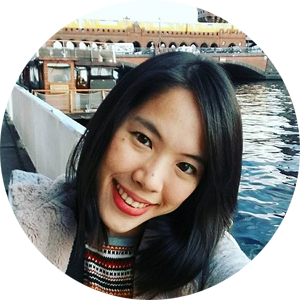A journey of fruits and vegetables that are free from invasive pests and diseases from one country to another isn’t that easy. Wichar Thitiprasert, Advisor of the National Bureau of Agricultural Commodity and Food Standards (ACFS) has spent more than ten years overseeing phytosanitary risks that come with the produce being transported in and out of Thailand to other countries in Southeast Asia. But much still needs to be done to improve measures to prevent and control pests and diseases from entering the country.
In an exclusive interview, the former director of Thailand’s Office of Agricultural Regulation outlined his vision of a more harmonized set of phytosanitary regulations and why the bloc should carry on the task.
Q: Why should ASEAN members pay more attention to sanitary and phytosanitary measures?
A: In recent months, the invasion of the fall armyworm pest to Thailand left so much damage. It destroyed about 30-40 percent of maize crops nationwide, much of which is sold to the animal feed industry. The incident was actually preventable if the ASEAN member states share the same measures against the pest and disease outbreaks. It proves to be a boon for both exporters and importers because the flow of agricultural goods boosts the trade volume with ASEAN and non-ASEAN members. The measures should be internationally accepted standards and be able to boost the consumer confidence both in Thailand and foreign countries.

Q: What is the best way to prevent pests and disease outbreaks?
A: The best way is to have measures that prevent quarantine pest especially, alien and invasive species from entering and establishing in the country in the first place because it is very difficult to control and eradicate them. ASEAN should come up with harmonized phytosanitary regulations and procedures while Pest Risk Analysis (PRA) being served as a tool for controlling risk from important pests. If we fail to do so, it could have a negative impact to farmers’ productivity and trade across countries.
The best way is to have measures that prevent quarantine pest especially, alien and invasive species from entering and establishing in the country in the first place because it is very difficult to control and eradicate them.
Q: What has Thailand done so far regarding phytosanitary controls?
A: Thailand’s Department of Agriculture has been developing the so-called Standard Operating Procedures (SOP) for inspectors who are in charge of phytosanitary measures to ensure consistency at the operational level is in line with international standards.

Q: What’re the SOP and its benefits?
A: SOP is step-by-step instruction or we can call them fundamental guideline. It shows the officers how to perform daily tasks and maintain the consistency of the operations to meet international standard and improve quality of products. We will reduce cost and time-consuming processes. Most importantly, we will gain more trust from our trading partners and consumers locally and internationally. The first look of the SOP is expected to be ready by November this year.
Q: What does it mean to the consumers?
A: This is to ensure that certified pest-free products meet phytosanitary standard, free from quarantine pests and safe for consumers. It can also minimize the risk of exotic pests in importing countries.
Even though FTAG Project is about to be completed in December 2019, great efforts from participating countries, namely Cambodia, Thailand and Vietnam to tackle obstacles that impede flows of fruits and vegetables among Southeast Asian nations continue to boost economy and make sure everyone in the region enjoy the sweet taste of food they take home.

Facilitating Trade for Agricultural Goods in ASEAN (FTAG) Project
FTAG, initiated in June 2017, has picked longan, banana, dragon fruit, lychee, mango and chili as potential crops to be developed through peer-to-peer learnings for aligning regulatory framework and procedures on phytosanitary measures to facilitate faster border crossing of fresh agricultural goods.
FTAG organizes trainings and workshops for inspectors and technical officers dealing with phytosanitary measures in trade of agricultural goods in Cambodia, Vietnam and Thailand.
